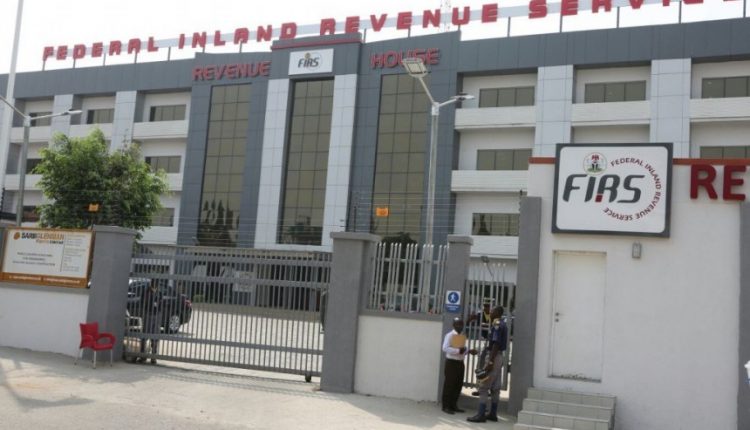
(FILES) In this March 16, 2024, image courtesy of the Massachusetts General Hospital in Boston, Massachusetts, surgeons perform the world's first genetically modified pig kidney transplant into a living human. - The first living patient to receive a genetically modified pig kidney transplant has died, the US hospital that carried out the procedure said in a statement issued late on May 11, 2024. (Photo by Michelle ROSE / Massachusetts General Hospital / AFP)
A Professor of Surgery at Obafemi Awolowo University, Ile-Ife in Osun State, Edward Komolafe, on Tuesday, opined that Nigerians would soon find it very difficult to see medical practitioners attending to patients at various hospitals if the Federal Government failed to find a permanent solution to the issue of “Japa Syndrome.”
He made this known while speaking with The PUNCH on the sideline of a Nigerian Academy of Neurological Surgeons Conference, with the theme, “Nigeria And Contemporary Neurosurgical Practice,” in honour of Professors Temitayo Shokunbi and Adefolarin Malomo, who retired at the age of 70 from the services of the University of Ibadan and University College Hospital, Ibadan in Oyo State.
The event was held at the International Conference Centre, University of Ibadan, Ibadan.
Komolafe stressed the need for the government to bridge the gap in the health system, especially in the neurosurgeon practice in Nigeria, as many practitioners are leaving the country to search for greener pastures in other developed Western world.
He further attributed it to systemic failure, government as well as institutional failure.
“When we look at the systemic failure in Nigeria for example. The economic situation and the social life are nothing to write home about. It is very disappointing, very frustrating. A lot of people are having depression and committing suicide because of the situation now. And when you now extend it to the health system, you find out that many patients can hardly afford to come to the hospital.
“In the hospital, the consultation fee is about N2,000 or N3,000, which is nothing but many can still not afford this, not to talk of buying drugs. A month’s dose of some antihypertensive will cost nothing less than N50,000 for some people, so where are they going to get this? They are retirees and not receiving any pension, even those that are working; what is their take home? The take home has been consumed by fuel which is not even enough for half of a month.
“So, social life is very difficult and a lot of health hazards are now seen, particularly in neurological conditions. Also, corruption in our system has gotten worse that the hospitals are dilapidated. You can even call it abattoirs, where you kill and slaughter animals. It’s as if patients come to the hospital and are just allowed to die because there is no equipment, there is no drugs, no medication, and there are no facilities to take care of them.
“Japa syndrome is eating the health system very badly. In my hospital in Ife, in the last two months, we have three new neurologists. Now it remains only one. Myself, in the last ten years, I’ve trained 12 neurosurgeons. Half of them are outside the country as we are talking. Even those that are within the country, they are looking for better places where they can get better pay, none wants to work with the government because the pay is terrible,” he lamented.
He urged the government to bridge the gap as the situation is getting worse on a daily basis, adding that the government must also be held accountable for every Kobo spent on the health sector.
“The solution is that we must deal with the corruption in our system. The government must be held accountable for every Kobo it spends. And they must spend it wisely.
“The World Health Organisation advocated for 15 per cent of the Budget to be allocated to health; this year, we are talking, the allocation to health is 4.47 per cent, less than five per cent. For a country that has more than 200 million. This is not fair to Nigerians. The government must do something better in terms of funding and proper allocation to health services in the health care system.
“I can tell you if the situation is not reserved, in the next few months to a few years, people will get to hospitals and not see any medical practitioner or doctor attend to them because those that cannot Japa are getting old and retiring like we just did for two people today. Those who are not Japa are dying; some are getting sick because of age. So, the government must find a solution to it right now.”
The Chairman of the occasion, Babatunde Salako, while declaring it open, said “We are here today to celebrate and honour two remarkable individuals who have dedicated their lives to the field of neurosurgery, Professors Shokunbi and Malomo.
“As they retire at the age of 70 from the services of the University of Ibadan and University College Hospital, Ibadan, we reflect on their incredible contributions, both to our institution and to the countless lives they have touched academically and professionally throughout their careers.
“Both of them have exemplified the essence of what it means to be a first-class neurosurgeon. With their unparalleled skill, unwavering dedication, and compassion, they have not only advanced surgical techniques but have also transformed the lives of countless patients and their students. Their expertise has been a beacon of hope for families facing the most challenging of circumstances in neurosurgical medicine.”
In their separate responses, the duo of Shokunbi and Malomo appreciated the organizers for the honour bestowed on them
Dignitaries at the event were the NANS president, Olufemi Bankole; Chairman of the advisory Committee, Abiodun Adeoye; Local Organising Committee Chairman, Augustine Adeolu; the Permanent Secretary, Oyo State Ministry of Health, Akintunde Ayinde and a host of others.

 2 hours ago
4
2 hours ago
4









 English (US) ·
English (US) ·